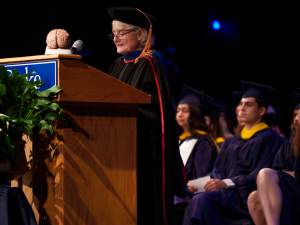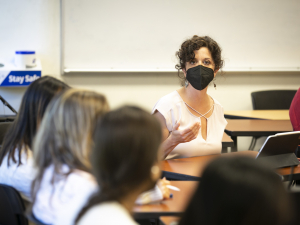Dr. Henry Yin Promoted to Full Professor

In a message to P&N faculty, Department Chair Scott Huettell stated: "Over the past decade, Henry has built a world-class research program that has provided important insights into the functioning of the basal ganglia (and of key circuits for learning and action, more generally). I can personally attest that when I teach the traditional explanation about how these regions contribute to reward learning, I now have to include a discussion of Henry’s work, which challenges that story with compelling evidence. His work provides a truly new and influential perspective on these circuits. And, over the past few years, Henry has made important contributions to Duke’s educational missions through his graduate mentorship, service as DGS, and supervision of undergraduate research assistants. Perhaps most impressively, undergraduates in his laboratory have been co-authors on 18 (!) scientific articles, including papers published in Nature Neuroscience, Current Biology, and PNAS. Those papers and the work they represent have provided springboards to graduate and medical studies for many of those students."
Yin's current research in the lab encompasses three areas:
1. The analysis of cortico-basal ganglia networks using wired and wireless in vivo stimulation and recording in awake, behaving rodents combined with permanent and reversible lesions, optogenetics, and local pharmacological manipulations.
2. The analysis of voluntary behavior using operant procedures as well as video-based and automatic parsing of natural behaviors.
3. The cellular and molecular mechanisms of synaptic transmission and plasticity in the basal ganglia, a set of brain structures critical for the generation and selection of voluntary behaviors: e.g. the contributions of dopamine, adenosine, opioids, and endocanabinoids to glutamatergic and GABAergic transmission and plasticity.




